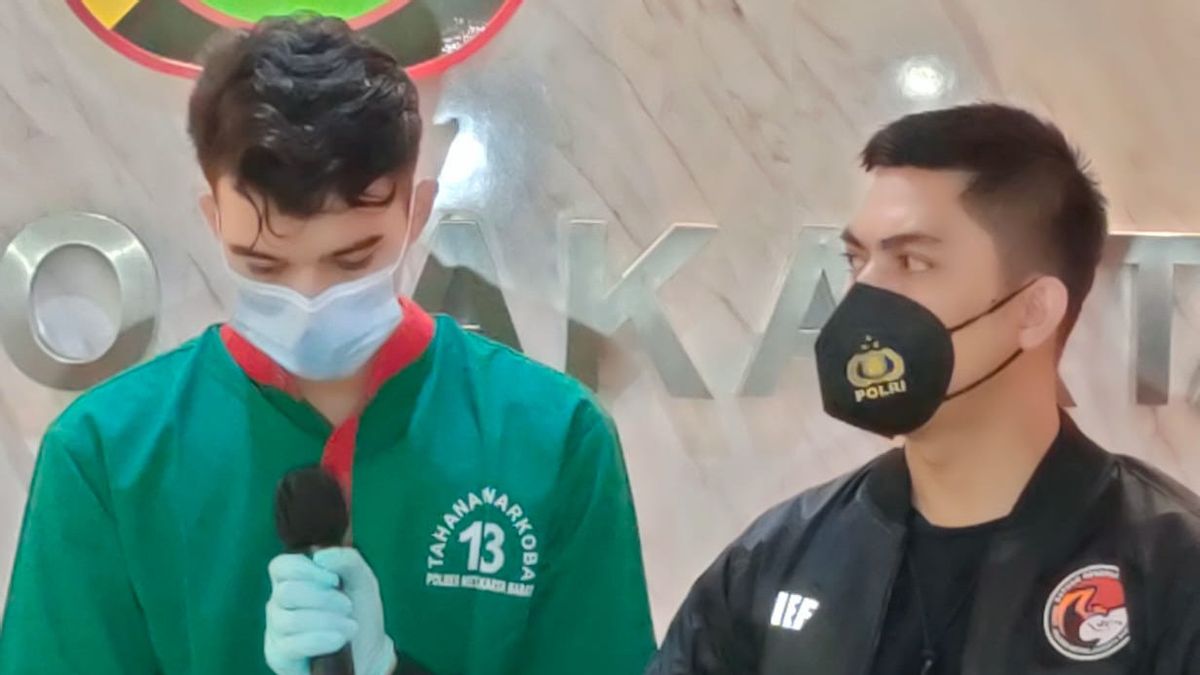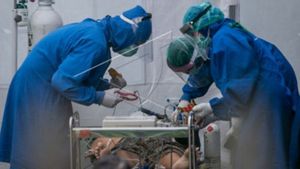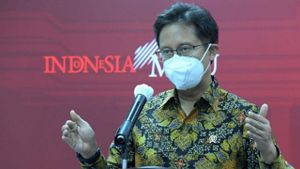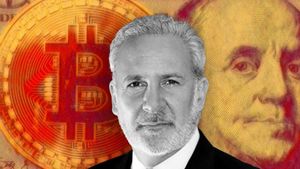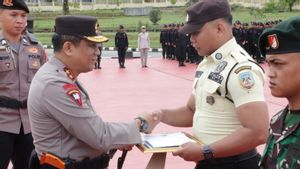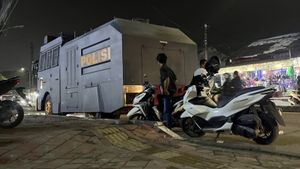JAKARTA - Nia Ramadhani and Ardi Bakrie are drug suspects. The public protested that the police did not 'show' the two of them in a press conference. Justice is in question because the police used to present suspects in similar press conferences. This demand for justice is true. But not to display Nia and Ardi but to make the police stop this habit.
The Head of Public Relations of the Metro Jaya Police, Grand Commissioner Yusri Yunus has explained the reason why Nia and Ardi were not shown. "Again for a hair test," he told reporters, Thursday, July 8. Prior to the Nia and Ardi cases, the police had a kind of habit of presenting public figures who were caught in drug cases.
Not just on display. They are also usually asked to apologize. Most recently, Erdian Aji Prihartanto or Anji. Wednesday, June 16, the West Jakarta Metro Police announced the suspect status of Anji. In front of the mass media, Anji apologized for consuming marijuana.

"First, I apologize to my family, relatives, work colleagues, parties related to me, and also all Indonesian people who are disappointed by this incident," said Anji.
Before Anji, there was a young actor, Jeff Smith. Like Anji, Jeff Smith was arrested for possession and consumption of the cannabis plant. What happened in this 'sorry' event is interesting. After apologizing to his family and loved ones, Jeff Smith gave his testimony about the benefits of marijuana.
Jeff Smith said the classification of marijuana as a Class I narcotic is wrong. Jeff Smith also encourages authorities to design cannabis use policies, through research first, of course. "Cannabis does not deserve to be categorized as a class one narcotic. As soon as possible, Indonesia must conduct research."
Questioning the 'apology session' of drug suspects
Institute for Criminal Justice Reform researcher Iftitah Sari explained that there is no legal provision for the police to display suspects in press conferences. The 'apology session' that we often see is a fairly new habit. Previously, the police at most presented suspects in the process of litigation.
"There are actually no rules for the press conference. In most cases are usually the ones that are often mentioned. Even then, there are actually no rules in the Criminal Procedure Code. It is only regulated at the level of the National Police Chief Regulation (Perkap) only. So the internal rules are the Police," she told VOI, Friday, July 9th.
In fact, according to Iftitah, displaying a suspect should not be done because it is contrary to the principle of presumption of innocence regulated by the Criminal Procedure Code. On several occasions, the police seemed aware of this principle. The problem is when we see the suspects, even though they are on display, they are asked to wear a face covering.
"In fact, in principle, you shouldn't be allowed to 'show up' the perpetrator or suspect because it is against the principle of presumption of innocence ... So in principle, the perpetrator or suspect must be presumed innocent before a judge's verdict is found."
Then what about the basis of the National Police Chief Regulation which is an internal police regulation, as stated by Iftitah? There is a kind of deviation, according to Iftitah. According to her, all implementing regulations regarding procedural law should refer to the Criminal Procedure Code.
Thus, the truest demand for justice as urged by the public is not bringing Nia and Ardi before the press. Especially to apologize. This habit should be stopped for any suspect, especially in drug cases.
"The treatment should not be considered selective as well. It must also be consistent for other perpetrators or suspects of criminal acts," said Iftitah.
Regarding why the context of drug cases is highlighted in this issue, the Director of Law and Policy of the Sativa Nusantara Foundation, Yohan Misero, explained how Law Number 35 of 2009 concerning Narcotics very carefully regulates the position of drug abusers.
In Law 35/2009, the classification of users, dealers, couriers, or other roles is very detailed. For users, Law 35/2009 positions them as victims. So in this context, the principle of the presumption of innocence becomes more principal to be maintained.
"This can be seen in many cases. Nunung, Tora Sudiro, Lucinta Luna, Dwi Sasono, and others. This is not required by law and should not be forced. We consider this habit to be stopped," YSN Director of Law and Policy Yohan Misero, quoted by VOI.
The principle of presumption of innocence

The principle of presumption of innocence is regulated in the Criminal Procedure Code (Book of the Criminal Procedure Code and Law Number 48 of 2009 concerning Judicial Power. In the Criminal Procedure Code, the principle of presumption of innocence is contained in the General Elucidation of the Criminal Procedure Code point 3 letter c.
"Every person who is suspected, arrested, detained, prosecuted and or brought before a court hearing, must be presumed innocent until a court decision declares his guilt and obtains permanent legal force."
Meanwhile, in the Law on Justice, the principle of presumption of innocence is regulated in Article 8 paragraph (1). The article reads:
Everyone who is suspected, arrested, detained, prosecuted, or brought before a court must be presumed innocent before a court decision declares his guilt and has obtained permanent legal force.
[ARTICLE SERIES: DON'T PANIC THIS IS ORGANIC]
Furthermore, the book Discussion of Problems and Application of the Criminal Procedure Code for Investigation and Prosecution by M. Yahya Harahap explains, “Suspects must be placed in human positions that have the essence of dignity. He should be judged as a subject, not an object."
"What is being examined is not a human suspect. It is the criminal act that he committed that becomes the object of examination. The direction of the crime being investigated is aimed at. The suspect must be considered innocent, in accordance with the principle of presumption of innocence until a court decision has permanent force."
*Read other information about DRUGS or read other interesting articles from Rizky Adytia Pramana and Yudhistira Mahabharata.
Other SOLID NEWS
SEE ALSO:
The English, Chinese, Japanese, Arabic, and French versions are automatically generated by the AI. So there may still be inaccuracies in translating, please always see Indonesian as our main language. (system supported by DigitalSiber.id)
